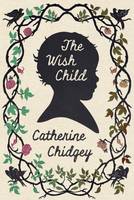It's my first day at the fest and it's a full morning for me with two events one after the other: Catherine Chidgey (Transformations) and Paul Cleave (Crimechurch). Both Kiwi writers and both well known in their respective fields. But how similar/dissimilar are their writing styles? The lights dim, lets find out!
They are both first and foremost writers: This sounds like a really obvious statement to make, but many other participants at festivals are not. They are first adventurers, sportspeople, chefs, politicians or comediennes who later write about those experiences.
But Chidgey & Cleave (sounds like an upmarket boutique store written like that) are both individuals who started writing young, and when asked their occupation would be totally justified in replying:"I am a writer".
They are both internationally known: Catherine Chidgey has strong German roots and has won several UK book awards starting with her first novel In a Fishbone Church (1998).

Her well-known novel The Wish Child is due for publication in the States this year. Paul Cleave is an international best selling crime author who divides his time between Christchurch and Europe. He has a receptive readership in both France and Germany and is also (with his next novel) due to break in to the American market.
They both like the creepy and the quirky: Chidgey is drawn to the weird - phrenology, wigs and the weird half-life status of hair, the religious Procession of the Snails in France, her collection of evening bags. Cleave specialises in unforgettably creepy shiver-up-and-down-your- spine characters like Joe in his first novel The Cleaner (2006). He likes quirky settings too and finds that Christchurch has those aplenty.
But in other ways these two authors are oh-so different.
Research: Cleave hardly does any research. Maybe ten minutes on Wikipedia tops. He does however need to keep an eye on his own writing and research, in a way. This is because he repeats characters in his books, so for the sake of good continuity he needs to check up on exactly what he said about them before. Nowadays he keeps detailed notebooks. Chidgey is a self confessed obsessive. Once she has decided to write on a topic she researches it to the exclusion of all else. Many is the time she has teetered on the brink of the Google Hole fearing that she would end up researching but never actually writing. Now she tries to research and write at the same time.
Personality: Chidgey is an introverted eyes-and-ears person, not that big a contributor to conversations. Cleave is a terrific talker with great rapport with his interviewer and I'd peg him as a high end extrovert. Chidgey draws heavily on family and friends for her inspiration. Cleave never uses the characteristics of friends in any of his books. His family was barely mentioned.
Writing Style: Cleave writes quickly and loves some of his characters so much that he repeats them, like Joe in The Cleaner (2006), who re-appears in Joe Victim (2013). Although his books are stand-alone reads they do loosely form a series. Chidgey writes slowly and contemplatively, sometimes she reworks a sentence 20 times before she gets it right. She had a 13 year gap between Golden Deeds and The Wish Child. Her latest novel The Beat of the Pendulum (2018) was a relatively fast write by her standards because it was written to cover one year of "found events" in her life. If she left long gaps in the writing she could not keep up. It is a challenging but highly creative book.
Here they are in their own words:
Paul Cleave:
My novels are about the characters in them. That's what you'll remember long after you've finished the book. There are characters that I love so much I want to repeat them in later stories. But I would kill any one of them to progress the story-line. I'm ruthless that way.
Catherine Chidgey:
I want to create something whole and beautiful out of all the white noise, the static, of everyday living.
My first day at WORD 2018, and two very successful writers show that you can never generalise when it comes to writing. There are as many different ways to be an author as there are stories waiting to be written. It was a very good start.
Find out more
- Find titles by Catherine Chidgey
- Find titles by Paul Cleave
- Our WORD Christchurch 2018 page
- WORD Christchurch festival programme





Add a comment to: Catherine Chidgey and Paul Cleave: WORD Christchurch Festival 2018